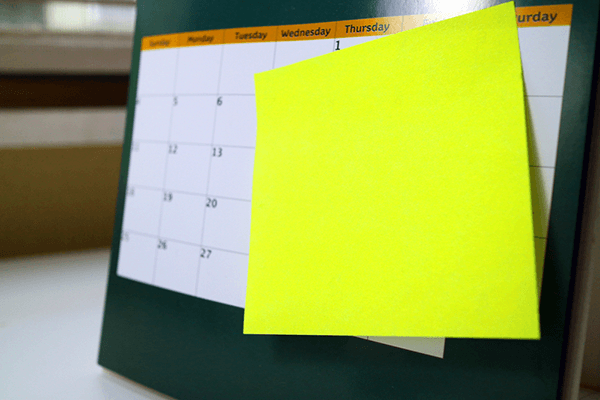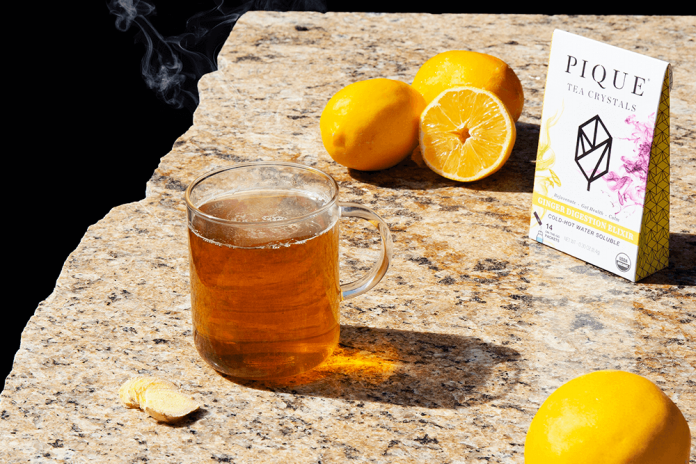Most of us probably want to keep our brain and memory in great shape – now and into our golden years.
But if you’re waiting until you’re older to do something about it, you may want to rethink your approach.
Science says it’s possible to support your brain health. The key? You have to take an active role in preserving your memory and mental function.
Even if you’re only in your 20’s or 30’s, it pays to start strengthening your brain today – before problems have a chance to develop. And it doesn’t have to be hard work. We’ve got some fun ideas for you ahead!
But first… why should you care about your brain now?
What Happens to Your Brain and Memory as You Age
Just like other systems in your body, your brain goes through age-related changes. Two important areas of your brain, the frontal lobe and hippocampus, can start to decrease in size as you get older (1). These are both connected to how your memory works and how you access short- and long-term memories.
Your body also sends fewer chemical messengers as you age, decreasing essential serotonin, dopamine, norepinephrine, and acetylcholine levels (1). These neurotransmitters are crucial for your overall well-being.
Not only are they responsible for helping you feel happy and relaxed, but they also help you recover from stressful situations. They can also affect your ability to process new information, multitask without losing focus, and remember the where, when, and what of everyday events (2).

But there is one silver lining to your brain aging. Decades of research show your brain can either stay the same or improve as you get older, given the right stimulation (2). However, this also means your brain can get worse if you don’t take good care of it.
By taking proactive steps now, you may be able to preserve and support your brain health and memory. The activities below will work on your semantic memory, which can help with recalling facts, understanding concepts, vocabulary, and language. And they can also affect your procedural memory, which helps you remember how to correctly do things and keeps routines etched in your memory (2).
9 Easy Brain and Memory-Boosting Activities to Start With
Supporting your brain and memory health is easier than you think. Beginning with these basics, you can spend as little as 10-15 minutes per day giving yourself a natural cognitive boost.
1. Go for a Walk (especially on uneven terrain!)
When it comes to the health benefits of walking, losing weight seems to take center stage. But walking is also one of the best activities for brain health. And you don’t need to go on long hikes to reap the rewards.
Researchers in one study proved walking just under two miles each day was enough to support a healthy thickness of the hippocampus. This part of the brain, and other important areas nearby, would otherwise naturally shrink with age (3).
Study participants also had faster processing times, improved attention spans, and better working memory — which helps with spontaneous decision making.
BONUS: Spend time walking on uneven surfaces to really give your brain a workout. Benefits from balancing across rocky, bumpy terrain include improvements in spatial orientation, focus, memory, reaction time and overall cognitive health.

2. Ditch Social Media for In-Person Connections
Scientists learned people were able to support their cognitive health when they were more social and had more in-person relationships. This means being around others has important potential benefits (4).
So if you needed another reason to sign off of social media to foster authentic face-to-face connections, this is a big one. Phone a friend and head out for a walk together. You’ll both have supported brain health and a friendship to last.

3. Change Up Your Routines
Another easy trick to support your brain health is to give your normal routine a shake-up. While healthy routines and habits are great for improving efficiency and decreasing the number of decisions you have to make each day, they can also leave you feeling like you’re living in Groundhog Day.
Routines force your brain to use the same neurological pathways each day. So by switching up your routines, you’ll tap into other areas of your brain you may not have been using.
To do this, you can opt for a different commute to work or change the order of how you get ready in the morning. Instead of showering first thing, try eating breakfast first or vice versa. And if you’re going to try this option on a workday, be sure to leave yourself plenty of extra time so you don’t create a stressful and late morning, something which will negatively impact your brain health.
4. Eat with Chopsticks or Your Opposite Hand
If you’re not ready to mess with your morning routine, you could try changing how you do things. Rather than eating with a fork, try using chopsticks, which can help you slow down your eating, utilize new skills, and spark different pathways in your brain.
The same happens when you use your opposite hand. So if you’re right-handed, try eating or brushing your teeth with your left hand, for example, and you’ll exercise the other half of your brain.

5. Get More Fruits and Vegetables
You know eating plenty of fruits and vegetables is good for your health and your waistline, but it’s especially good for giving your memory a much-needed boost.
Researchers discovered that people who consume six or more servings of fruits and vegetables — as opposed to two servings or less per day — supported their cognitive health (5).
Fruits and vegetables are naturally loaded with antioxidants and vitamins to protect your health and your brain, so it makes sense to hit these targets each day. Plus, filling up on these means you’ll have less room for harmful junk foods.

6. Read More Books
Reading is another easy brain and memory-boosting activity you can try today. Wait! This doesn’t mean pulling out your phone to scan the latest articles in your feed.
Rather, scientists say you can support your brain function and connectivity by getting lost in a good book (6). If you’re able to dive into a work of fiction, you’ll score even more benefits. According to the research, you’ll develop more empathy and the ability to put yourself in someone else’s shoes (6).
Fiction books also help you tap into another important area of your brain: your imagination. And this is something most of us don’t use enough day-to-day.

7. Meditate
Research shows meditation can have profound effects on your brain health. One study found that people who meditated long-term supported the gray matter in their prefrontal cortex, which plays an important role in memory and decision making (8)(9).

8. Don’t Rule Out Puzzles and Crosswords
Similar to reading an actual book instead of one on your phone, swapping electronic puzzles and crosswords for hard copies gives your eyes a much-needed break from the screen while also keeping your brain active and engaged.
You’ll see bigger benefits when you choose to learn something new (more on this shortly) instead of choosing repetitive tasks (7). Consider weaving in puzzles and crosswords every so often and in between learning a new skill.

9. Maximize Brain Space – Leave Certain Things on Autopilot
Prioritize what you want to use your brainpower for. Stop wasting it on mundane things like keeping track of soccer practice, recitals and meetings, or god forbid – hunting for your keys every morning.
Keep neat calendars and to-do lists handy. Find a place for everything in your home and create a habit of keeping things in their rightful spot. Stop throwing your keys, sunglasses, or dirty laundry on whatever surface is the closest. Find a permanent home for these and make sure they stay there when not in use.
This simple step eliminates added stress, and it also strengthens a mental routine — you never have to remember where your keys are because they’re always in the same location. This also frees up mental space for you to focus on more important tasks.

5 Next-Level Brain and Memory-Boosting Activities
When you need to step up your game, these next 5 activities will be like a mini workout for your brain:
1. Walk Backwards
It may sound strange at first, but walking backwards — or even just thinking about walking backwards — helps people recall things better than simply moving in a forward direction (10).
Researchers believe this motion may help people tap into their memory response to trigger important details. So the next time you lose something, try carefully retracing your steps backwards to see if that helps jog your memory.
2. Turn Things Upside Down
Yes – literally. Flip things upside down to challenge your brain to view them from a different perspective.
You can rotate objects like your calendar, wristwatch, or piece of paper in front of you. This will force your brain to utilize different pathways. It also helps you slow down and gives your brain a chance to process new information.
3. Quit Relying on Your Phone for Everything
Looking at a real map for directions — instead of one on your phone — can give your brain a new and exciting challenge.
The same is true for memorizing phone numbers for your loved ones. Start by memorizing one or two phone numbers at a time and dial them instead of always asking Siri to do it for you.

4. Drink More Tea
Studies show sipping tea is another easy way to support brain health. One body of research found that green tea can support working memory — which is connected to decisions — and cognitive function (11).
Researchers from another study discovered that the combination of caffeine and l-theanine in green tea specifically helps to promote calm while also supporting memory, attention, and overall brain function (12). Enjoy a nice cup of tea while you read a book and you’ll tackle two tips at once.

5. Learn Something New
Just because you’ve finished school doesn’t mean you can’t acquire new skills. Anyone can learn a new language or learn to play an instrument (13). These activities are incredible for opening up and using new neural pathways.
And since they improve with progression, they can also trigger reward signals in your brain, which may combat decreasing neurotransmitter levels (such as dopamine and serotonin, for example).
Skip This Popular “Brain Hack”
You may have noticed this list doesn’t include any brain game apps. Although meditation apps may be useful, research has shown many brain game apps have been falsely advertised. They aren’t going to give you a real cognitive boost or improve your brain health (14).
If anything, they’re more likely to cause screen fatigue and get you addicted to playing them. These games are part of a billion dollar industry to keep you hooked, and the science on their touted benefits just doesn’t back them up.
Skip the free trial of these popular brain games and consider trying one or more of the 14 real hacks on this list. You can start each of them today without needing any special downloads, expensive supplements, or difficult exercises. Trust us, your brain will thank you now and later on.







